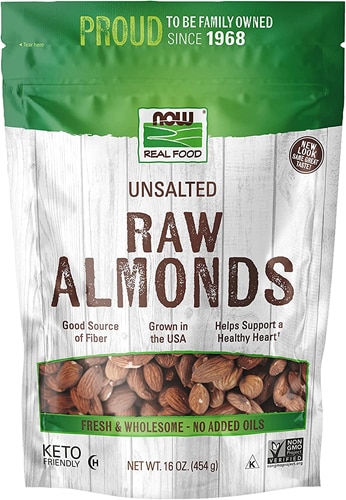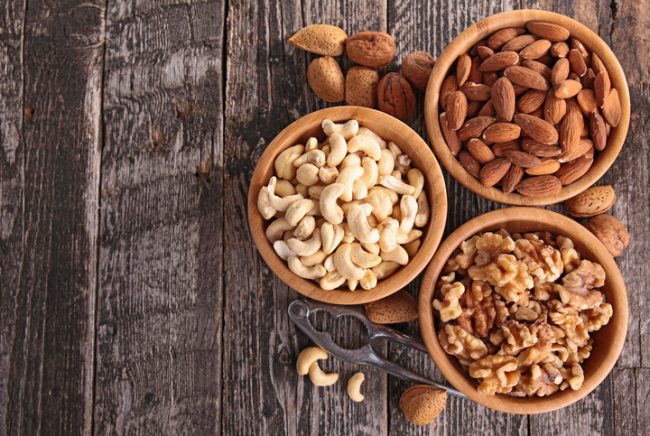A handful of good health may be as close as your pantry, or a grocery store shelf. To get this boost, you just have to be willing to go a little nutty.
Nuts – from peanuts to almonds and walnuts, and everything in-between – pack a powerful nutritional punch. And they may help prevent some types of disease.
In fact, several studies have linked consumption of nuts to a lower risk of cardiovascular disease – including heart attack and stroke – as well as type 2 diabetes and some forms of cancer.
"Including nuts in the diet may also reduce our odds of an untimely death due to these diseases or other causes," says Carrie Dennett, a Seattle-based registered dietitian nutritionist who is also a writer and speaker.
A 2013 study published in the New England Journal of Medicine found that individuals who ate a handful of nuts every day were 20 percent less likely to die of any cause over a three-decade period than people did not eat nuts regularly.
The health benefits of nuts
Nuts are rich in heart-healthy monounsaturated and polyunsaturated fats, as well as fiber, protein, and vitamins and minerals. They also contain phytochemicals, bioactive compounds that act as antioxidants and help fight inflammation in the body.
"That last part is huge, because chronic inflammation can set the stage for heart disease, diabetes, cancer and other serious health problems," Dennett says.
Some nuts are especially beneficial. Walnuts are a good source of plant-based omega-3 fatty acids. Plant-based omega-3s are in the form of alpha-linolenic acid (ALA). That makes them different from the much-heralded omega-3s available in seafood, which are in the form of eicosapentaenoic acid (EPA) and docosahexaenoic acid (DHA).
However, research shows that plant-based omega-3s also offer health benefits, Dennett says.
Researchers have studied walnuts and almonds more than other nuts, and have found clear links to cardiovascular health and reduction of chronic inflammation. But that doesn't mean you should avoid other nuts, Dennett says.
"All nuts can be a valuable part of a healthful eating plan, because all nuts bring a slightly different package of nutrients to the table," she says.
Avoiding eating too many nuts
Despite nuts' unquestioned benefits, eating too many can backfire and have negative health consequences.
Although nuts are rich in healthy fats, fiber and nutrients, they are also high in calories.
"While eating nuts tends to be associated with a healthy body mass index, that doesn’t mean that more nuts are better," Dennett says.
She recommends a serving of 1 ounce. That's about one-fourth of a cup, or a small handful.
"Rather than eat nuts mindlessly out of a large bowl or container – which is easy to do – include them as part of a planned snack," Dennett says.
For example, you might combine a few nuts with a piece of fruit, or eat them as part of a meal. You can also sprinkle chopped nuts on yogurt and fruit, or give a "satisfying crunch" to a salad by using nuts in place of croutons, which are much less nutritious, Dennett says.
"Don't fear nuts because of the calories, but don't go crazy with them, either," she says.
Rather, try to eat small servings of a variety of nuts so you get the largest possible nutritional and health benefits.
"If you do keep a variety on hand, store them in the freezer," Dennett adds. Doing so can keep their fragile but so-good-for-you oils from going rancid before you have a chance to use them up, Dennett says.




